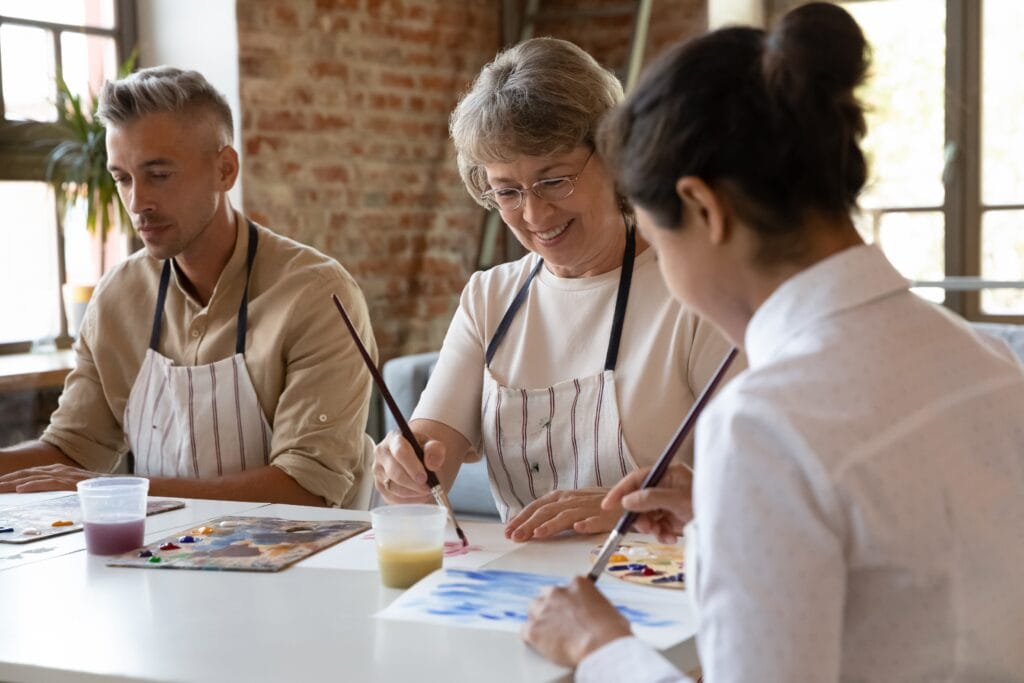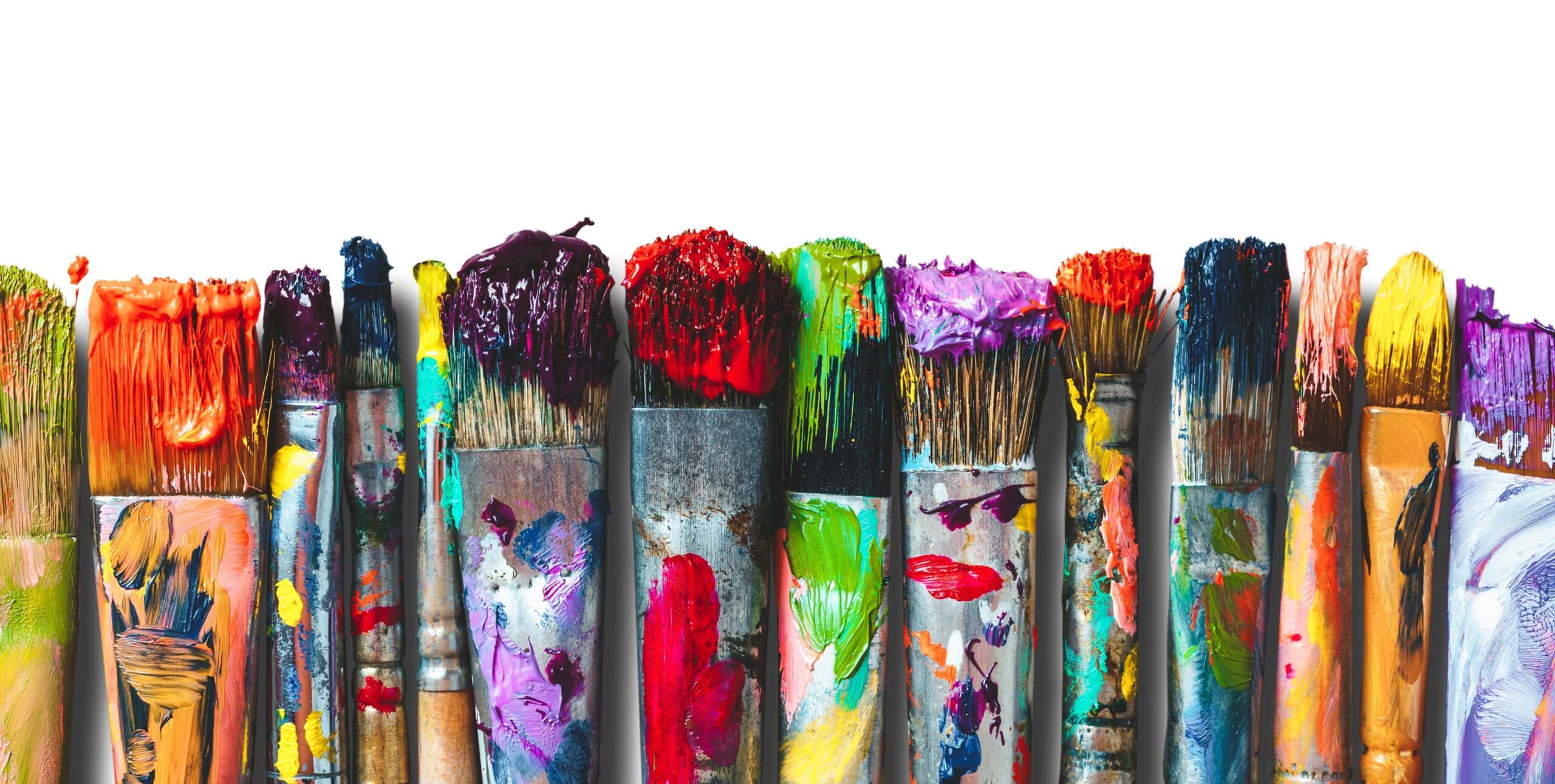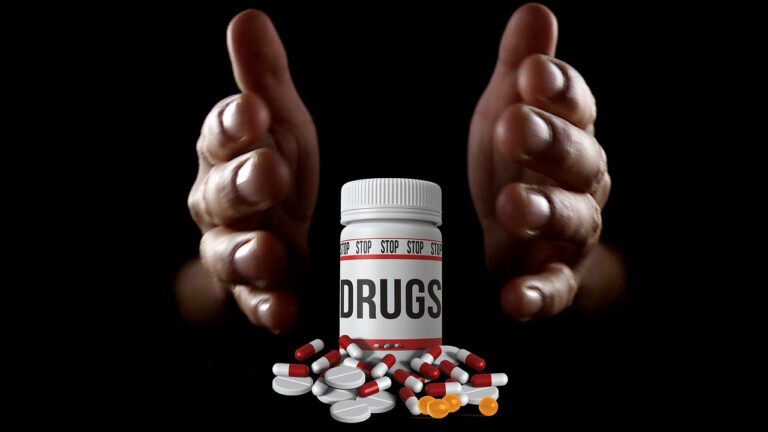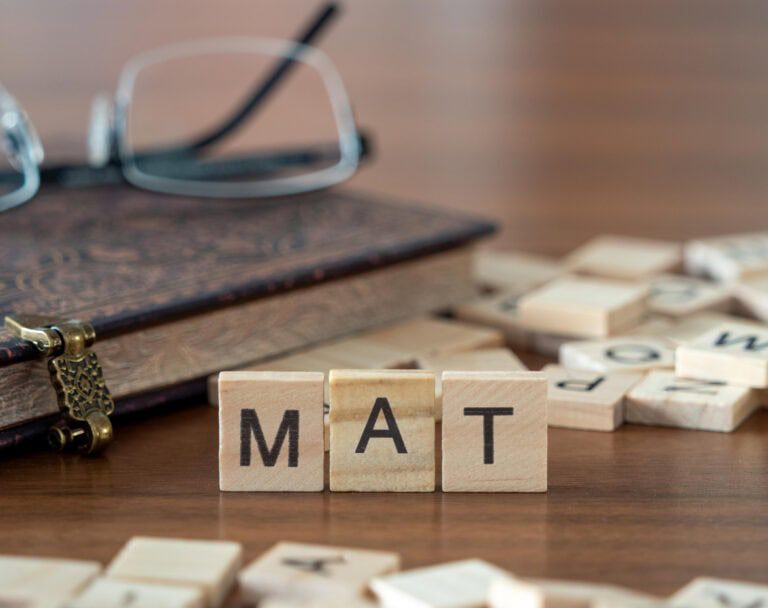Art In Addiction Recovery
Art in addiction has power to move you in many ways. Just as art provides dimension and color to our lives, it can also be a powerful way for people struggling with addiction to express pain, trauma, and emotions more effectively. Many people who struggle with alcohol or drugs first start using them to self-medicate.
Drugs and alcohol provided an escape from painful emotions and traumatic experiences. Creative arts is a group of artistic activities that allow people to use creativity and imagination to express themselves without using alcohol or drugs. Art therapy utilizes a wide variety of art forms to treat a range of physical and emotional conditions.

How Is Art in Addiction Recovery Important?
One of the key benefits of art therapy is its accessibility. It does not demand any prior experience or artistic talent. Regardless of the outcome, engaging in creative expression helps individuals connect with their emotions and process experiences that may be too difficult to verbalize. Instead of discussing these feelings and emotions through traditional therapy, individuals can talk about the piece they created with a therapist. This artwork can then serve as a catalyst, helping them uncover and resolve emotional and psychological issues.
Easing Trauma Through Self-Expression
A significant portion of people seeking addiction treatment have experienced trauma, and it is at the root cause of many people’s addictive behaviors. Therapeutic treatments provide clients with the tools they need to access and become more comfortable with their emotions. This can be a challenging process, and many clients become overwhelmed as they experience negativity and the resurgence of extremely difficult memories.
Through art therapy, clients create tangible meaning to their emotions that don’t require verbal expression. Through painting, drawing, clay work, or music, art becomes the expression of emotion that words fail to explain adequately. Art can speak volumes without uttering a single word.

The Benefits of Participating in Creative Therapy During Addiction Recovery
If someone is in recovery from addiction, the treatment process should include a combination of therapeutic modalities to help them heal emotionally, physically, and spiritually. Creative arts therapy is considered a form of holistic therapy, and it is often used in combination with traditional treatments because it helps clients express their deepest thoughts, emotions, and feelings in a nonjudgmental and healthy manner.
Many people in recovery have difficult and painful feelings and emotions that are too hard for them to verbalize. By engaging in the creative process, they can work through these feelings and use art as an outlet for self-expression. Creative art therapy enhances addiction treatment, helping clients process traumatic events and reduce trauma symptoms. Art can encourage healthy coping skills, improve concentration, and boost self-esteem. Through creativity, clients learn how to express themselves non-verbally while boosting their confidence by making something unique. Additional benefits that come from participating in art therapy include:
Boosting mood while increasing mental skills like concentration and coordination
Reduced feelings of stress and anxiety
Gaining insight into previous experiences and difficult events while encouraging personal growth
Increased feelings of calm, relaxation, peace, and satisfaction
Providing a positive means of self-expression, communication, emotional support, and engagement
Improving social and communication skills as well as social integration
As a professional therapist guides a client through their art therapy session, they will eventually find they can discuss their painful or traumatic experiences without using alcohol or drugs as a means of escape. This guidance provides a sense of security and reassurance, allowing clients to explore their emotions in a safe environment.
Connect With Us Now
Reach out to us now for immediate support, or let us know the best time to contact you through our confidential callback service. Your journey to healing is just a conversation away.
What Forms of Art Therapy Are Available for Someone in Treatment?
Art therapy provides a healthy outlet for your inner voice. As addiction manifests in a person, their ability to own their emotions and then communicate them to others in a healthy manner becomes lost. At this point, their mental health is at the mercy of their addiction. Because life is so unpredictable, having a positive outlet for emotional expression is important.
Participating in creative therapy is vital to a person’s overall well-being and can help them overcome possible triggers for relapse. The techniques learned in art therapy can also be a tool that clients can use to sustain their sobriety long after they have completed the treatment program.
Art therapy in addiction recovery often takes place in a group setting, creating a sense of community and shared experience. This environment encourages clients to focus on their work while being surrounded by others, fostering a supportive atmosphere for their recovery journey.
Music – Music is powerfully moving for many people, and learning how to play an instrument or write a song can be healing during addiction recovery. It can help people connect with their emotions and with others while providing a sense of comfort and belonging.
Dance – Dance is a form of art based on movement to convey expression. Dance helps clients release any pent-up emotions through dynamic movements and allows for the physical expression of feelings like joy, anger, and sadness. Dance therapy reduces stress, improves mood, and provides a positive outlet for emotional release.
Theater – Theater (also called drama therapy) may involve acting, storytelling, and role-playing. Drama therapy helps clients explore personal experiences and emotions while also allowing them to step into different roles and scenarios. This helps them better understand their behaviors and other people’s behaviors.
Sculpture – Sculpting involves the use of materials like wire and clay. This hands-on activity helps build self-esteem while molding and shaping the clay, symbolizing making positive changes.
Collaging – Creating collages is helpful for exploring personal experiences and identity in recovery. Carefully selecting and arranging different elements can help clients reflect on their past, provide insight into their present emotions, and illustrate their hopes for the future.
Story writing and telling – Story writing involves writing narratives about a client’s personal experiences. By creating these stories, clients can make better sense of their past while envisioning a hopeful future. This process helps recognize personal growth, organize thoughts, and foster a greater sense of hope and empowerment.
Poetry writing – Poetry writing is somewhat structured and can help clients creatively express their emotions. The rhythm and flow unique to poetry can help convey any feelings that are difficult to express.
Photography – Photography can be cathartic and enable the expression of feelings and ideas. The pictures clients take can help bring positive memories from the past to the surface and also help create a sense of connection, which is essential in addiction therapy.
Through art therapy, clients can safely express their anger towards someone or their situation. They can also communicate any fears or anxieties and express how previous trauma affected their path in life and the frustration they may feel as they work towards recovery.
Art therapy in addiction treatment not only helps clients express themselves emotionally but also fosters healing and self-discovery. Through engaging in the creative process, clients can gain deeper insight into their thoughts and feelings, helping them better understand and overcome their addiction.
Substance Use Disorder
Art therapy can play a crucial role in the recovery process for those suffering from substance use disorder. The act of creating art allows individuals to explore their emotions and experiences without the need for verbal communication, providing a unique way to address the root causes of their addiction.
Journaling
Incorporating journaling into the recovery process alongside art therapy can be incredibly beneficial. Journaling allows individuals to reflect on their thoughts and progress, complementing the self-expression and emotional exploration facilitated by art therapy.
Art Therapy Helps
The power of art therapy helps individuals on their journey to recovery by providing a safe and supportive environment to explore and express their emotions. It is an essential component of a holistic approach to addiction treatment, offering numerous b
Are You Covered For Treatment?
Oasis Recovery Center partners with numerous private insurance providers. Our team is committed to assisting you in quickly and effortlessly verifying your insurance coverage for treatment.









